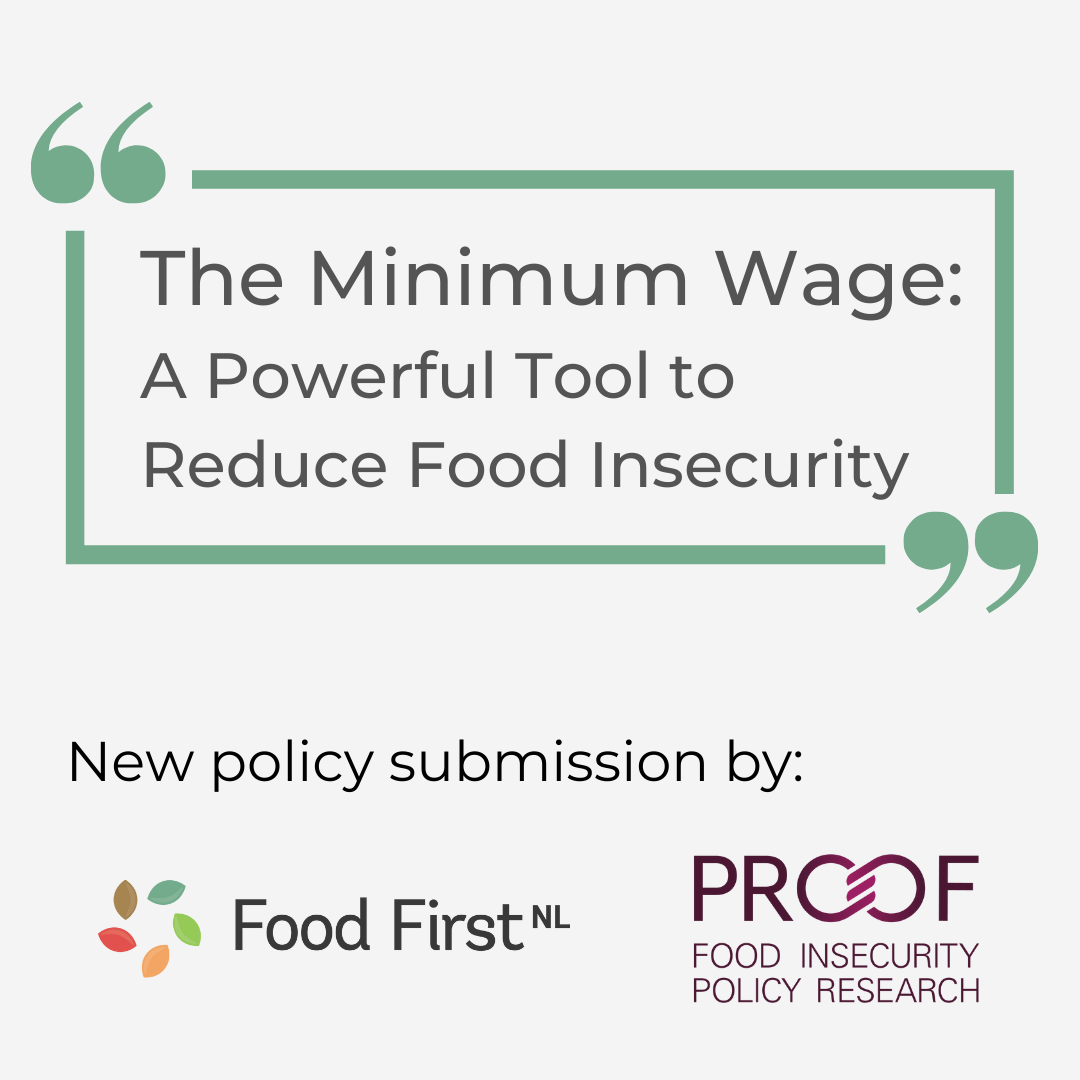
Food First NL and PROOF have co-authored a submission to the 2022 Newfoundland and Labrador Minimum Wage Review Committee, titled “The Minimum Wage: A Powerful Tool to Reduce Food Insecurity.”.
The submission draws on research demonstrating that increases in minimum wage reduce risk of food insecurity in the provinces and that working adults in countries with higher minimum wage, and collective bargaining are less likely to be food-insecure.
The research also provides important evidence that reductions in food insecurity from higher minimum wage are very unlikely to be offset by any potential impact on the unemployment rate. It suggests the benefit of a higher minimum wage on food insecurity reduction outweighs any resulting unemployment, a commonly cited reason against higher minimum wage.
Having a job is not enough to protect someone from food insecurity; it is necessary to ensure jobs pay enough and provide support for those in precarious employment. With roughly half of food-insecure households in Newfoundland and Labrador relying on income from wages and salaries, policies interventions that reach low-income households in the workforce and improve their financial circumstances are critical for reducing food insecurity in the province.
At a time when food prices and other basic living costs are rapidly rising, it is important that the province implement policies that ensure that everyone can afford to meet their basic needs.
Summary of Recommendations
- Raise the current minimum wage to a more adequate level as the baseline moving forward. Although the indexation of minimum wage to inflation means regular increases in line with inflation, it provides no assurance that the minimum wage is adequate for meeting the costs of basic needs, which has been a long-standing concern since the introduction of indexation in 2018.
- Make the minimum wage setting process a part of a larger concerted government effort to address food insecurity. In order to address food insecurity, the government needs to reconcile wages and employment circumstances, social assistance, and other income supports with the actual costs of living.
- Recognize that any decisions made on wages are decisions that directly impact food insecurity. Actions to improve the financial circumstances of low-income households are necessary to reduce food insecurity and its burden on health and the healthcare system.
Read the full submission.
Key research on minimum wage and household food insecurity
Men F, Urquia ML, Tarasuk V. The role of provincial social policies and economic environments in shaping food insecurity among Canadian families with children. Preventive Medicine. 2021;148. Available from: https://www.sciencedirect.com/science/article/pii/S0091743521001420
Reeves A, Loopstra R, Tarasuk V. Wage-Setting Policies, Employment, and Food Insecurity: A Multilevel Analysis of 492 078 People in 139 Countries. Am J Public Health. 2021;111(4):718–25. Available from: https://ajph.aphapublications.org/doi/full/10.2105/AJPH.2020.306096
